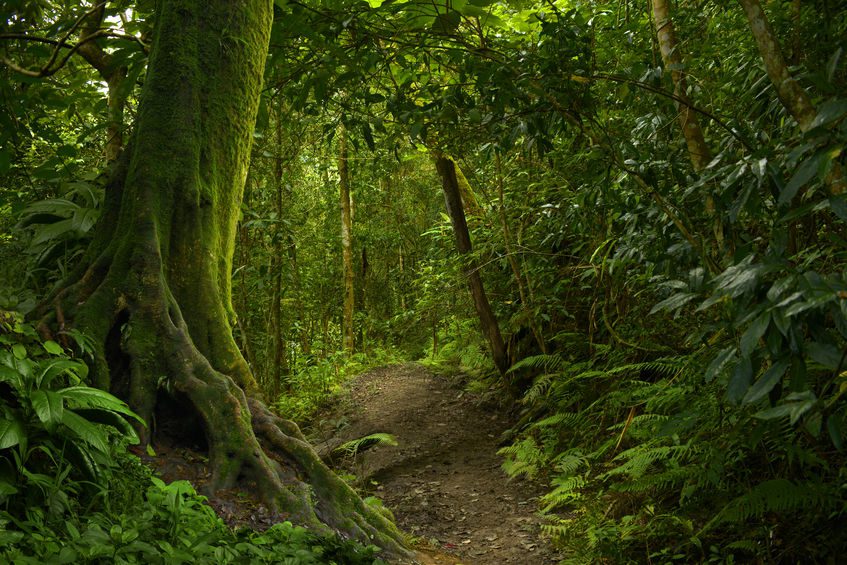CLEMSON – An international team of ecologists – including College of Science professor Saara DeWalt – has published a study in the journal Science Advances that expounds on how fast tree species recover in regrowth tropical forests.
 The team, which included members from the United States, Latin America and Europe, was led by researchers from Wageningen University in the Netherlands. The article was titled “Biodiversity recovery of Neotropical secondary forests” and appeared March 6.
The team, which included members from the United States, Latin America and Europe, was led by researchers from Wageningen University in the Netherlands. The article was titled “Biodiversity recovery of Neotropical secondary forests” and appeared March 6.
Tropical forests are home to more than 53,000 tree species, accounting for 96 percent of global tree diversity. These forests are threatened by high levels of deforestation, mostly driven by agricultural expansion. Once agricultural fields are abandoned, they can be rapidly colonized by naturally regrowing forests, which are called “secondary forests.”
The team inventoried trees in 1,800 tropical forest plots located in 56 sites across 10 countries in Latin America. They used plot data from secondary forests of different ages and compared it to neighboring, well-conserved, old-growth forests. The research showed that species richness of these small forest patches recovers in a few decades, but that it might take centuries before their species composition becomes similar to that of old-growth forests.
“These results from across Latin America corroborate what my team has found working on trees, climbing plants, and epiphytes (plants that grow on other plants) in secondary and old-growth forests in the Barro Colorado Nature Monument in central Panama,” said DeWalt, interim chair of the department of biological sciences.

“We were impressed to find that it takes only five decades, on average, to recover the total number of species found in well-conserved old-growth forests, and that within only 20 years already 80 percent of the number of species is present,” added Danaë Rozendaal, lead author of the study. “This emphasizes the importance of secondary forests for biodiversity conservation in human-modified tropical landscapes.”
Although the number of species may recover relatively fast, the study also showed that the tree species found in regrowing forests are usually different from those in neighboring old-growth forests. After 20 years of regrowth, only 34 percent of the original species composition had recovered. Therefore, it might take centuries before these regrowing forests again harbor the same tree species as the original forest, and they may never attain the original species composition.
This unique study has direct implications for forest restoration policies and practice. Natural forest regeneration has been seen as an ecologically sound way to restore large areas of forest at lower costs compared to active tree plantings. Natural forest regeneration may therefore be the ideal method to meet the goal to restore 350 million hectares of forest in 2030, as set under the Bonn Challenge. DeWalt cautioned, “We have found that secondary forests recover biomass and biodiversity relatively quickly and should be part of conservation goals, but we still must prioritize conservation of old-growth forests.”
– Information from a media release by Wageningen University was used extensively in this report.
END
This research is a product of the 2ndFOR collaborative research network on secondary forests. It involves 85 researchers from 16 different countries. The network focuses on the ecology, dynamics, and biodiversity of secondary forests, and the ecosystem services they provide in human-modified tropical landscapes.
Get in touch and we will connect you with the author or another expert.
Or email us at news@clemson.edu

